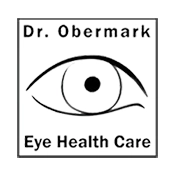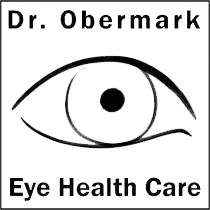Allergies & Your Eyes

Are your eyes constantly itchy, watery, or red? You may be dealing with eye allergies in Poplar Bluff MO and Sikeston MO, a condition that affects countless people each year, especially during allergy season. While many brush off these symptoms as mild irritations, they can significantly interfere with daily life and even affect vision if left untreated.
At Dr. Obermark Eye Health Care, we understand how disruptive allergic eye symptoms can be. Our experienced optometrists at all our locations are here to help identify your triggers and create a treatment plan designed to bring you lasting relief.
What Are Eye Allergies?
Eye allergies—also known as allergic conjunctivitis—occur when your immune system overreacts to an otherwise harmless substance. These allergens, such as pollen or pet dander, trigger inflammation in the conjunctiva, the clear membrane that lines the inside of your eyelids and covers the white part of your eye.
Once exposed to allergens, your body releases histamine and other chemicals, resulting in swelling, redness, and discomfort.
Common Eye Allergy Triggers
Your symptoms could be caused by seasonal or year-round (perennial) allergens. Knowing the difference can help you better manage your exposure.
- Seasonal Allergies: Usually caused by outdoor triggers like pollen from trees, grass, or weeds. Symptoms tend to flare up in the spring, summer, or fall.
- Perennial Allergies: These are triggered by indoor allergens like dust mites, mold, or pet dander and can occur any time of year.
Understanding which type of allergen is affecting you is the first step in managing your condition effectively.
Recognizing the Symptoms of Eye Allergies
Allergic conjunctivitis can range from mildly irritating to seriously disruptive. The most common symptoms include:
- Persistent itching that makes you want to rub your eyes constantly
- Red, bloodshot eyes caused by inflammation of the conjunctiva
- Excessive tearing as your eyes attempt to flush out allergens
- Burning or stinging sensations, especially when exposed to light
- Swollen eyelids, often more noticeable in the morning
- Sensitivity to light (photophobia) in moderate to severe cases
- Blurred vision due to excessive tearing or irritation
- Clear, stringy discharge, often mistaken for early signs of infection
If your symptoms are intense, persistent, or affecting your quality of life, it’s time to schedule an evaluation.
Diagnosing Eye Allergies: What to Expect
Eye allergies share symptoms with other eye conditions like dry eye syndrome, blepharitis, or bacterial conjunctivitis, so getting the right diagnosis is crucial. At Dr. Obermark Eye Health Care, your exam may include:
1. A Detailed Health History
We’ll review your personal and family history of allergies, asthma, or eczema, and ask about your symptoms—when they occur, how long they last, and what seems to trigger them.2. Symptom Review
We’ll dig deeper into how your symptoms impact your daily life, whether they’re worse indoors or outdoors, and whether they’re affected by seasons, pets, or other known allergens.3. A Comprehensive Eye Exam
Using a slit lamp microscope, we examine your eyes for redness, swelling, discharge, and any damage to the surface of the eye that could indicate allergy-related inflammation.4. Tear Film Evaluation
Poor tear quality can worsen allergic symptoms. We may assess your tear film to check for dryness or inflammation markers.5. Allergy Testing (if needed)
If your symptoms are severe or year-round, we may refer you for skin prick tests or bloodwork to identify specific allergens.6. Conjunctival Cell Sampling
In select cases, we may collect a small sample from the conjunctiva to look for eosinophils, white blood cells often present during allergic reactions.
After diagnosing your specific type of allergic conjunctivitis, we’ll build a treatment plan that works for your symptoms, triggers, and lifestyle.
Treatment Options for Eye Allergies
Managing eye allergies successfully often requires a mix of short-term symptom relief and long-term prevention strategies.
- Avoiding Triggers: Whenever possible, avoid known allergens:
- Keep windows closed during high pollen days
- Use HEPA filters in your home or office
- Wash hands and face after spending time outdoors
- Bathe pets regularly and avoid allowing them in sleeping areas
- Regularly wash bedding in hot water to eliminate dust mites
- Over-the-Counter Relief: Antihistamine eye drops reduce itching and redness
- Artificial tears flush out allergens and soothe dryness
- Decongestant drops can reduce redness (short-term only—avoid prolonged use)
- Prescription Medications: For more persistent symptoms, your optometrist may recommend:
- Prescription antihistamine drops for fast relief
- Mast cell stabilizers to prevent allergic reactions before they start
- Combination drops that offer immediate relief and long-term control
- Short-term corticosteroid drops for severe inflammation
- Oral antihistamines, especially if you also have nasal or skin symptoms
- Immunotherapy: For patients with year-round or severe allergies, allergy shots or sublingual tablets (under-the-tongue drops) may help build tolerance to specific allergens.
- Home Remedies and Lifestyle Tips
- Use cold compresses to relieve puffiness and itching
- Avoid rubbing your eyes—it can worsen swelling
- Take regular breaks from screens to reduce dryness and irritation
- If you wear contacts, consider switching to daily disposables during allergy season
When to Call Your Eye Doctor
If your symptoms are interfering with your vision or not responding to OTC treatments, don’t wait. Untreated eye allergies can lead to chronic discomfort, corneal damage, or recurring infections.
Our optometry team will help you get lasting relief with a personalized treatment plan tailored to your eyes, your lifestyle, and your specific triggers.
You Don’t Have to Live with Itchy, Watery Eyes
Allergy season—or allergy life—doesn’t have to mean red, irritated eyes every day. With the right diagnosis and a smart treatment strategy, you can take control of your symptoms and get back to seeing the world clearly and comfortably.
Call Dr. Obermark Eye Health Care today to schedule your eye allergy evaluation at one of our multiple locations. Let’s get you back to enjoying the world, without the itch.



